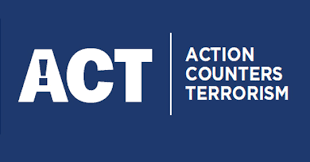As a hotel operator you will want to ensure that your guests feel safe whilst staying at your hotel and that your security systems are effective in helping to prevent theft, damage and unauthorised access.
Tecserv UK has prepared our top tips for ensuring your hotel security system is effective:
The security systems that are usually installed into hotel complexes include intruder alarms, access control systems and CCTV surveillance systems. Each system will be uniquely specified according to the risk assessment and will depend on factors such as the layout, location and level of risk.
Most hotels allow unrestricted entry at main access points (some use “porter “ services who double up as on site security teams) but will use intruder alarms and access control systems to lock down and restrict access to certain areas to authorised persons only – such as fire escape doors, back of house service areas, offices, stock rooms and alike. CCTV is also widely used as a way to monitor these areas, in order to raise alerts when suspicious activity is identified and to provide quality evidence of theft, damage or injury.
Security System Maintenance
A regular programme of routine maintenance will ensure that all systems are operating correctly and will help to spot any potential faults. In a hotel, carrying out maintenance can be difficult as guests rooms may be occupied and events may be taking place. By working with an approved and reputable service provider a schedule of inspections can be planned to ensure all components are routinely checked. Regular system maintenance ensures that you meet compliance regulations and help to prevent the need for costly emergency repairs, meaning your guests can sleep easy knowing they are safe and their possessions are protected.
Staff Training & Uniforms
Measures that will improve security and compliment the use of security systems and technology include ensuring staff have training and an awareness of general security. Online e-learning courses such as the Action Counters Terrorism (free) can bolster the knowledge of your entire team with zero cost implications.

The wearing of uniforms is also great way to identify staff and would highlight people who should not be in certain areas.
Provision of excellent customer service
Even though guests may only stay a short while, ensure staff are able to communicate with guests, provide them local intelligence such as locations of reputable taxi ranks, bus routes, advice if there are areas they should avoid, particularly if alone.
Regular Risk Assessment
When the security equipment was installed a risk assessment should have been carried out in order to identify the security risks, allowing a suitable and sufficient system design and installation. The risk assessment should be ongoing and evolving. Any new or changes to the identified risks should be taken into account and subsequent changes, upgrades, or enhancements should be made to counter the new perceived risks.
Security risk can be affected by many factors at the time: who is staying in the hotel – such as VIP guests and any activities that may be taking place within the vicinity of the hotel. Events such as concerts, road works, building works and public events could all affect hotel security at any point in time. It is important to be aware of internal and external factors that may alter the security risk.
If you have any questions regarding the security of your hotel please get in touch or complete the enquiry form below.

Mick has over 30 years experience working within the Fire and Security industry. Starting as an installation engineer and quickly progressing into both operational and sales management roles.